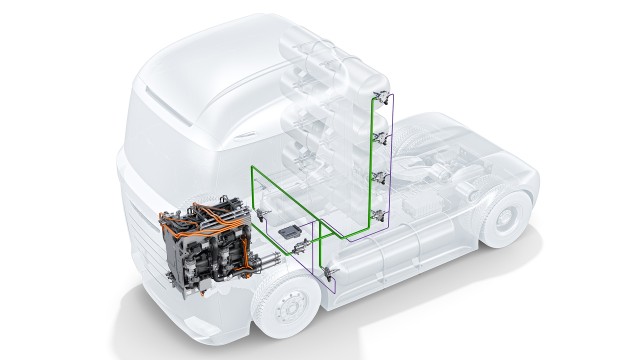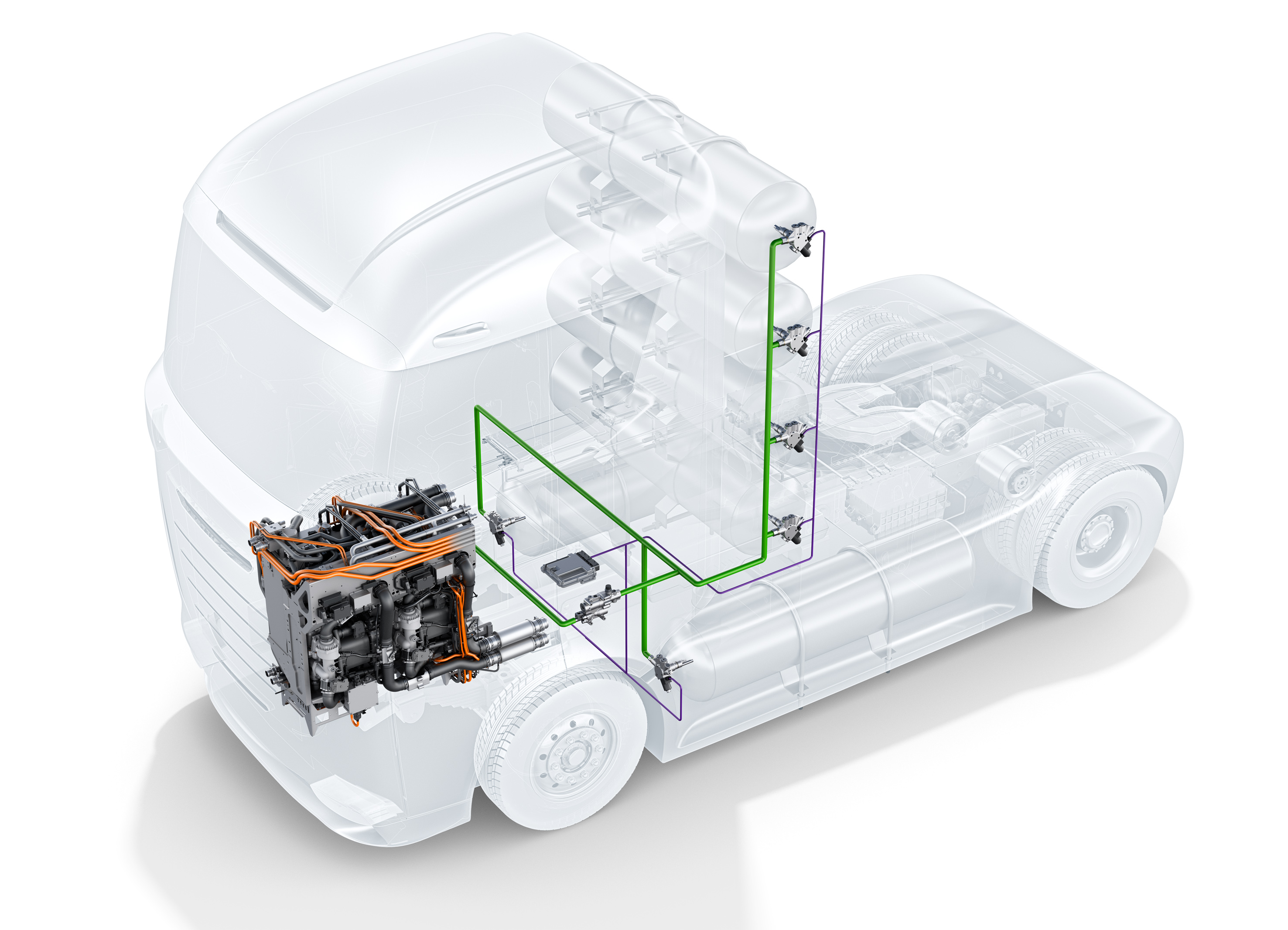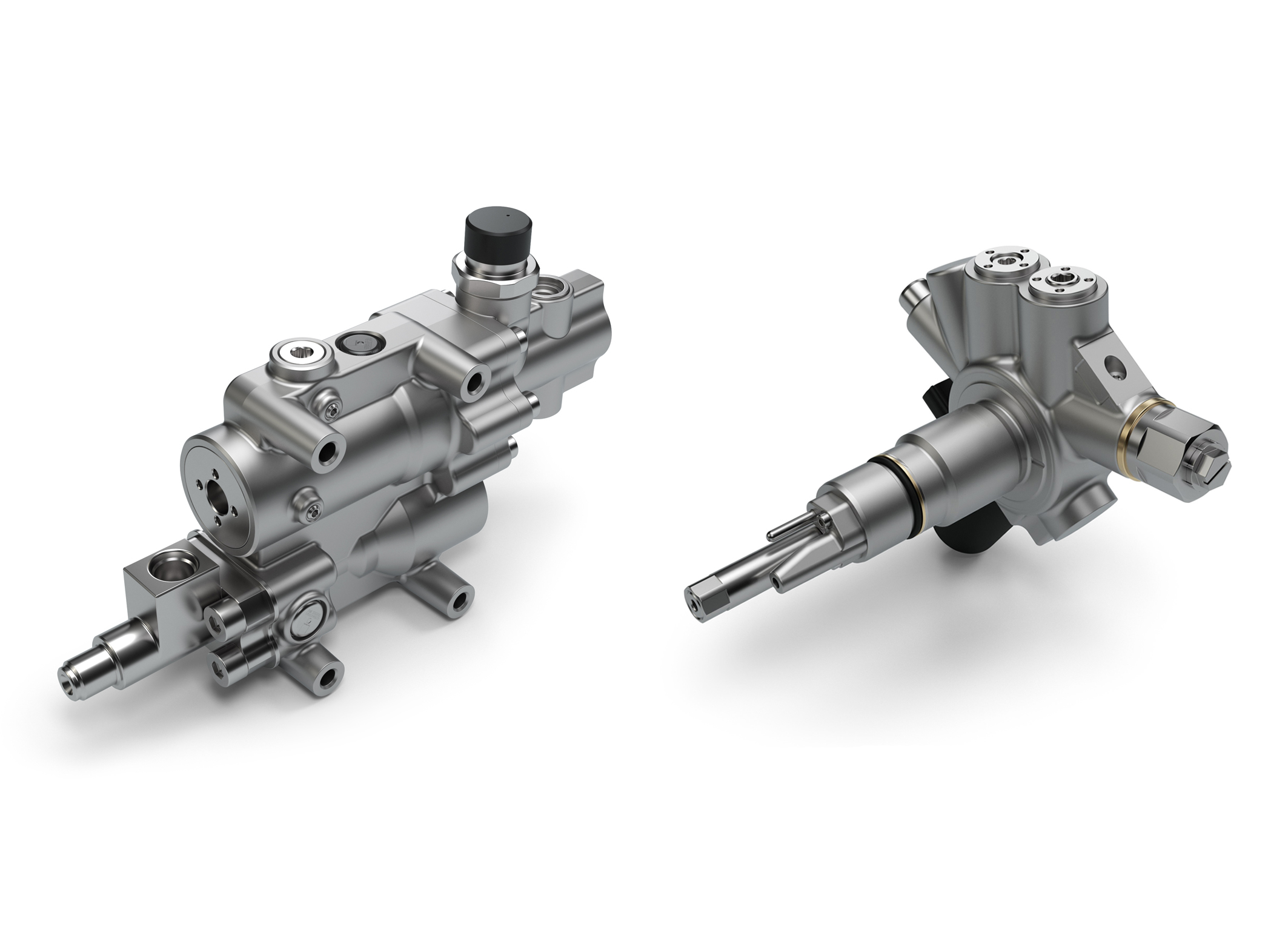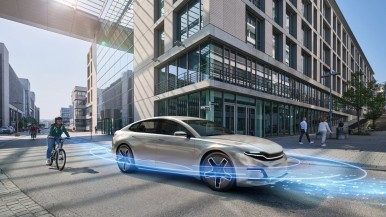Stuttgart, Germany / Brescia, Italy – Bosch has expanded its product portfolio for mobile hydrogen applications: as of now, it also includes components for H2 tank systems such as tank valves or pressure regulators. For this purpose, the supplier of technology and services has entered into an engineering partnership with the Italian specialist OMB Saleri in which the products are jointly further developed. “In the drive to achieve climate neutrality, hydrogen will be an important building block in the future powertrain mix,” says Dr. Uwe Gackstatter, president of the Bosch Powertrain Solutions division. “Together with OMB Saleri, we are making H2 tank components ready for volume production.”
Mobility is the largest Bosch Group business sector. It generated sales of 55.8 billion euros in 2024, and thus contributed around 62 percent of total sales. This makes the Bosch Group one of the leading mobility suppliers. Bosch Mobility pursues a vision of mobility that is safe, sustainable, and exciting. For its customers, the outcome is integrated mobility solutions. The business sector’s main areas of activity are electrification, software and services, semiconductors and sensors, vehicle computers, advanced driver assistance systems, systems for vehicle dynamics control, repair-shop concepts, as well as technology and services for the automotive aftermarket and fleets. Bosch is synonymous with important automotive innovations, such as electronic engine management, the ESP anti-skid system, and common-rail diesel technology.
The Bosch Group is a leading global supplier of technology and services. It employs roughly 418,000 associates worldwide (as of December 31, 2024). The company generated sales of 90.3 billion euros in 2024. Its operations are divided into four business sectors: Mobility, Industrial Technology, Consumer Goods, and Energy and Building Technology. With its business activities, the company aims to use technology to help shape universal trends such as automation, electrification, digitalization, connectivity, and an orientation to sustainability. In this context, Bosch’s broad diversification across regions and industries strengthens its innovativeness and robustness. Bosch uses its proven expertise in sensor technology, software, and services to offer customers cross-domain solutions from a single source. It also applies its expertise in connectivity and artificial intelligence in order to develop and manufacture user-friendly, sustainable products. With technology that is “Invented for life,” Bosch wants to help improve quality of life and conserve natural resources. The Bosch Group comprises Robert Bosch GmbH and its roughly 490 subsidiary and regional companies in over 60 countries. Including sales and service partners, Bosch’s global manufacturing, engineering, and sales network covers nearly every country in the world. Bosch’s innovative strength is key to the company’s further development. At 136 locations across the globe, Bosch employs some 87,000 associates in research and development.
Additional information is available online at www.bosch.com, www.bosch-press.com.







